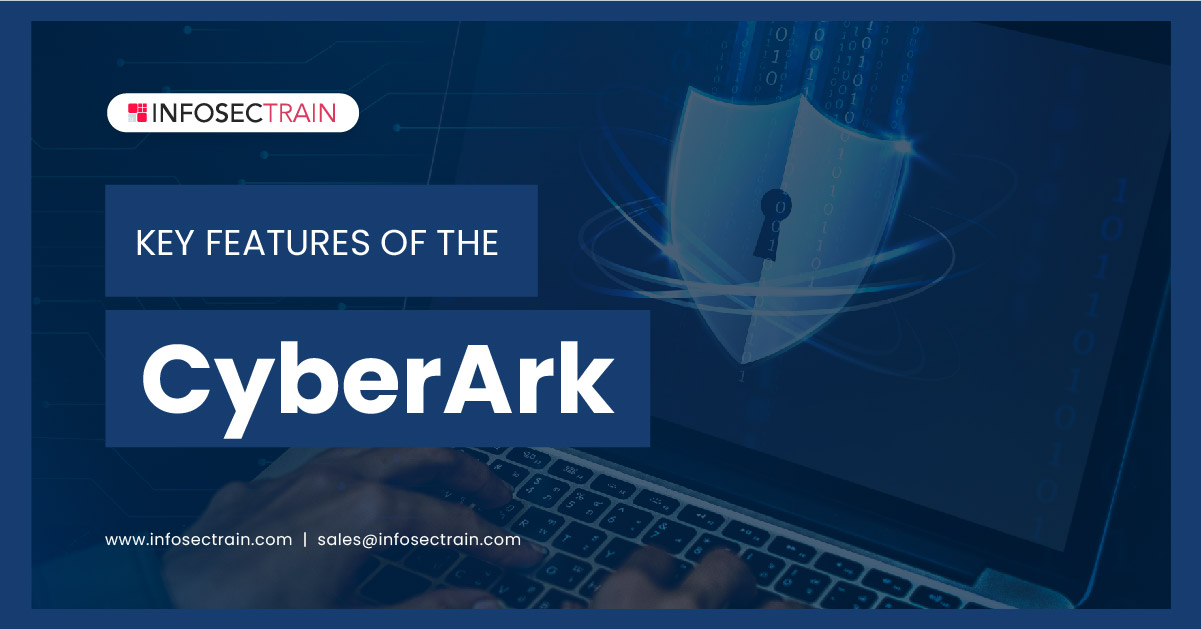Key Features of the CyberArk
Every organization will have privileged accounts. Providing security to these privileged accounts is highly important. If the privileged accounts are not secured, the organizations are at risk of compromise. It makes the organization use tools like CyberArk to protect their privileged accounts. The features of CyberArk offer organizations to maintain and protect privileged accounts securely.

In this comprehensive blog, we will see the key features of the CyberArk tool. Let’s get started.
CyberArk is a complete security suite to secure privileged accounts, devices, and passwords. It includes various security solutions such as the Privileged Password Management and Control that help organizations meet security compliance.
CyberArk updates the security compliance and audit policies and standards to avoid the risks of cyber threats and penalties. It enhances the process of monitoring, securing, and managing privileged accounts.
Key Features of CyberArk
The following are the key features of CyberArk:
Advanced Threat Protection: CyberArk provides threat protection policies that help detect and mitigate the specific application threats of the organizations. These protection policies guard against threats to remote access, Web browsers, Microsoft Windows operating systems, and other IT applications.
Industrial Control Systems Security: CyberArk enables the Operational Technology used to monitor, detect and control changes to devices, processors, and events of industrial equipment that are popular targets for cyber attackers. Unauthorized access to critical Industrial Control Systems (ICS) can wreak havoc on power stations, transportation networks, and smart city infrastructure. CyberArk Alero offers organizations with OT environments that help secure and enable remote access to critical applications easily.
Windows Security: Using CyberArk Vault, the system configures the authentication features that allow the user to enter the user’s vault without any additional login procedures. To install Vault, the user should perform the required procedure for the system architecture.
- Primary-DR Environment
- Distributed Vault
- Cluster Environment for Primary-DR and Distributed Vault
IT Audit and Reporting: The reports can be generated on Vault activity and the data can be exported to the third-party reporting tools. The users can schedule reports for automatic generation weekly or monthly. This configuration includes the type of reports and the content, who can access the report, and the users to receive automatic notification of the time the report is generated.
DevOps Security: CyberArk DevOps security solution ensures the security over DevOps tools and CI/CD pipelines by developing six core principles designed to help organizations DevOps security at scale. The in-built secret management software works at DevOps velocity to secure the software supply chain.
Cloud & Virtualization Security: The practice of protecting services, applications, and abilities that operate on cloud resources is referred to as Cloud Workload Security. It includes Databases, Virtual Machines, Applications, and Containers.
Unix/Linux Security: CyberArk’s On-demand Privilege Managers help control and monitor the administrative rights on servers, networks, and devices, by protecting Unix/Linux environments. It allows users to access and run the application based on the task and role provided with the privilege accounts.
Confidential File Security: CyberArk’s file protection solutions proactively secure and control access to protect sensitive files from unauthorized access.
Insider Threat Protection: CyberArk Privileged Access Security solutions aim to limit user privileges and control access to privileged accounts. It ultimately reduces the risk of insider threats and prohibits users from creating their paths in the network. It also provides adequate checks to ensure the right access is granted and monitored in real-time to detect potential threats.
Remote Vendor Access Security: CyberArk Privileged Remote Access Management provides secure remote access with biometric multi-factor authentication without any need for passwords or VPNs. With CyberArk, remote vendor access drives business productivity, efficiency, and continuity without introducing significant risks.
Payment Card Industry Data Security Standard: CyberArk has access to the Council’s Payment Card Industry Data Security Standard with Privileged Identity Management and Governed File Transfer technology to provide encryption and safe sharing and exchange of sensitive information by the users and accounts.
Enhanced Audit Visibility for Linux Systems: CyberArks’s enhanced audit capabilities simplify the audit and compliance requirements for privileged sessions in Linux systems. It provides a great solution to ensure accountability using automation tools such as Ansible to Linux machines and easy access using SSH certificates.
Multi-Cloud and Multi-region Support for CyberArk Vault Deployments in the Cloud: CyberArk Vaults over multiple regions and multiple cloud providers allow users to deploy the primary Vault in AWS and recover Vault in Azure. It also allows deploying Vaults in two separate AWS or Azure regions or two zones in the same region for increased availability. It adds flexibility, availability, and redundancy for the users moving to the cloud and multi-cloud environments.
Suspected Credential Theft Detection in Microsoft Azure: CyberArk’s threat analytics abilities detect suspected theft of passwords for Identity and Access Management (IAM) accounts in Microsoft Azure and enable CyberArk users to recover the events by alerting security teams and rotating the credentials automatically.
Simplified Configuration of Ransomware Protection with Endpoint Privilege Manager: CyberArk’s Endpoint Privilege Manager solution helps secure privileged access on the endpoint. It includes Ransomware Protection policies that allow remote employees to be protected from ransomware attacks.
Final Words
Organizations everywhere are developing and implementing new security features in which the CyberArk provides various features to protect and maintain organization security compliances and prevent cyber threats. To learn more about CyberArk, check out the CyberArk online training program course at InfosecTrain.







 1800-843-7890 (India)
1800-843-7890 (India)